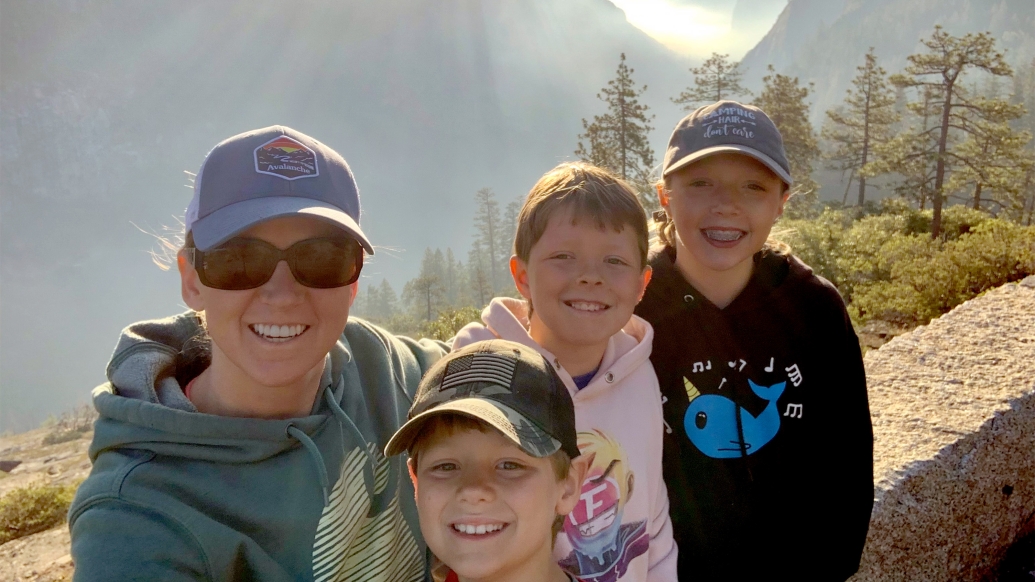Virtual group sessions focus on emotional health, tools to counter depressive symptoms in kids with severe congenital heart disease
5:59 AM
Author |

Born with half a heart, Amelia Dantzer used to regularly feel anxious when her heart seemed to race or she perceived other symptoms signaling something could be wrong.
Today, the teen journals, takes walks listening to her favorite music and practices breathing exercises to reset anytime she feels anxious – tools she learned through a unique program for kids with complex congenital heart conditions.
The Well-Being Education Program, or WE BEAT, at U-M Health C.S. Mott Children’s Hospital helps teens like Amelia connect with peers and learn skills that foster emotional resilience.
“Amelia would sometimes go into panic mode when her stress seemed to exacerbate symptoms and make her heart overwork. She’d have a hard time getting out of it,” said her mom, Adrian Dantzer, who is a clinical assistant in the Mott cardiac intensive care unit.
“I think the biggest take away for us from being part of this program is that mental health affects heart health. We want to provide Amelia with as many coping tools as possible as she goes from a teen to an adult.”
The WE BEAT pilot, part of the U-M Congenital Heart Center Psychosocial and Educational Program unites small groups of adolescents with similar heart diagnoses through weekly virtual sessions overseen by faculty and trainees from the division of pediatric psychology.
The primarily donor-funded intervention, designed by program director and pediatric psychologist Melissa Cousino, Ph.D., was recently described in Cardiology of the Young.
We’re increasingly focused on psychological well being in the prevention of cardiovascular disease over recent decades.” Melissa Cousino, Ph.D.
Cousino says research suggests that young people with heart disease are at an increased risk of anxiety and depressive symptoms.
“Many of the patients I’ve worked with have never met another teenager with the same heart condition as them and often note that they’re the only ones at their school with ‘half a heart’,” Cousino said.
“They’ve never talked to someone else their age who gets worried about chest pain, the possibility of needing another surgery or whether they will get the heart transplant they need.”
“This program provides a safe space for young people to connect while using evidence-based strategies to help them improve their emotional health and well being.”
WE BEAT, she says, is intended to be preventative and promotive mental health care.
The program normalizes and validates the understandable emotional burdens of living with pediatric health conditions, she adds, while fostering skills all can benefit from, versus only providing reactive care when concerning mental health symptoms surface.
Research suggests that higher resilience – characterized through emotion regulation skills, social connectedness, and positive health behaviors – is correlated with important health outcomes, such as fewer hospital admissions and improved social and school functioning.
“We’re increasingly focused on psychological well being in the prevention of cardiovascular disease over recent decades,” Cousino said.
“Despite the critical importance of psychological well-being and related resilient outcomes in promoting optimal cardiac health, there have been very few psychological interventions directed towards children with heart disease.”

WE BEAT is funded through philanthropic efforts along with some grant funding.
Currently, it’s offered to eligible patient groups with single ventricle heart disease who require a surgery known as the Fontan or adult congenital heart disease through a clinical research pilot program.
Cousino hopes to expand research on how WE BEAT may influence health outcomes in adolescents with severe heart disease in order to offer it to larger pediatric heart and other chronic illness populations.
Feeling empowered to take ownership of heart and mental health
Amelia was born with tricuspid atresia – which means she has half a heart missing on the right side of her heart. She’s had three open heart surgeries, as well as some heart catheter procedures, and is followed by Mott pediatric congenital heart specialists Sarah Gelehrter, M.D., and David Bradley, M.D.
As she prepares to start high school next fall, the 13-year-old rower and violinist says she’s glad she had a chance to connect with peers with similar conditions and to learn coping strategies that help her manage the regular highs and lows.
“It’s helpful knowing there are other people your age who feel the same way you do instead of having to feel out of place,” she said.
WE BEAT sessions teach practical skills that can be used in day to day life, such as mindfulness techniques to calm the mind and body that participants learn are associated with reduced inflammation, blood pressure and other outcomes important to their heart care.
Sessions are themed, with focus areas including gratitude, finding meaning and purpose and shared experiences. Group members aren’t forced to speak but may share when they like, Cousino says.
Dantzer said kids like Amelia not only need specialists to look after their heart but support to promote their emotional and mental well being as they face challenges along their journey.
“I’m always looking for ways to support her besides being her parent,” Dantzer said.
“I feel it’s important to provide her with as much education about her own body – heart health and mental health – as possible so she can choose whatever tool helps her continue to make healthy lifestyle choices and be able cope with any setbacks life throws her way.”
Additional authors include Catherine Dusing, Ph.D.; Sara Pasquali, M.D.; Jesse Hansen M.D., and Kurt Schumacher, M.D., all of U-M.
Study cited: “Developing the WE BEAT Well Being Education Programme to foster resilience and build connection in paediatric heart disease,” Cardiology of the Young. DOI: 10.1017/S1047951124000556
Sign up for Health Lab newsletters today. Get medical tips from top experts and learn about new scientific discoveries every week by subscribing to Health Lab’s two newsletters, Health & Wellness and Research & Innovation.
Sign up for the Health Lab Podcast: Add us on Spotify, Apple Podcasts or wherever you get you listen to your favorite shows.

Explore a variety of health care news & stories by visiting the Health Lab home page for more articles.

Department of Communication at Michigan Medicine

Clinical Associate Professor
Want top health & research news weekly? Sign up for Health Lab’s newsletters today!





